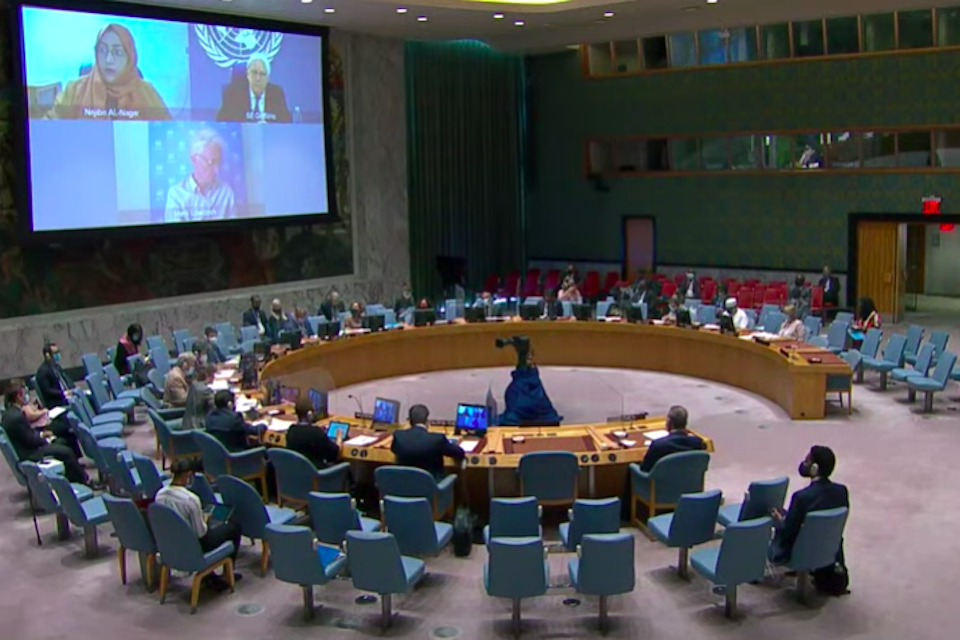Calling for a nationwide ceasefire in Yemen
Statement by Ambassador Barbara Woodward, UK Permanent Representative to the UN, at the Security Council briefing on Yemen

Thank you, Mr President. May I start by thanking our briefers for their briefings today, but in particular for their work over the last few years and months. I’d also like to thank Mark as outgoing Undersecretary-General and look forward to continuing our cooperation with Martin in his new role.
Martin, your recent visit to Sana’a is welcome, but it also sadly underlines that the Houthis waited until the last days of your tenure to invite you back to Sana’a for the first time in over a year. I think it is clear that the Houthis do not have the courage to embrace a ceasefire. Instead, last week, they again targeted civilian sites in Marib indiscriminately with ballistic missiles, killing 10 civilians, and on Sunday, a Houthi attack hit a Saudi school. I strongly condemn these acts, as well as the Houthis’ continued crackdown on the rights and freedoms of Yemeni women as well as religious and ethnic minorities.
I welcome your briefing today, Najiba, and hear clearly your call for a ceasefire, backed up by the resources and support for women-led organisations for an inclusive path to peace. And I, and I’m sure others, will encourage the new Special Envoy to consider how they may work closely with you to make the process more inclusive and ensure that the positions of women, youth, and minorities are genuinely represented going forward.
Mark, I’d like to thank you, too, for your tireless efforts. In the past years, as conflict has ravished Yemen, both your and the UN’s efforts have helped support those most in need and save lives. But the world’s worst man-made humanitarian crisis continues. Severe fuel shortages continue to blight Yemen, and mean that a third of fuel is imported into Hodeidah of what would normally be expected. The UK calls on the parties to find a permanent solution to this issue. The Houthis must ensure that fuel imports are distributed transparently, and the Government of Yemen must ensure a reliable and sustained flow of fuel into northern Yemen.
Earlier this month, the Council met to discuss the perilous situation of the SAFER oil tanker - a year since the Security Council first held a dedicated discussion of SAFER. Yet the tanker is no closer to being made safe. This issue is in the gift of the Houthis to deliver. We have heard that a worst-case scenario could put 670,000 lives at risk and take decades to clear. Rather than hiding behind endless bureaucratic hurdles, the Houthis must engage substantively to avoid a potential disaster.
Finally, Mr President, as Martin said, Yemeni people are paying a high price of lost and missed opportunities over six years. As we’ve heard, a nationwide ceasefire would be a first, critical step on the path to a future of stability, rights and freedom.
Thank you.